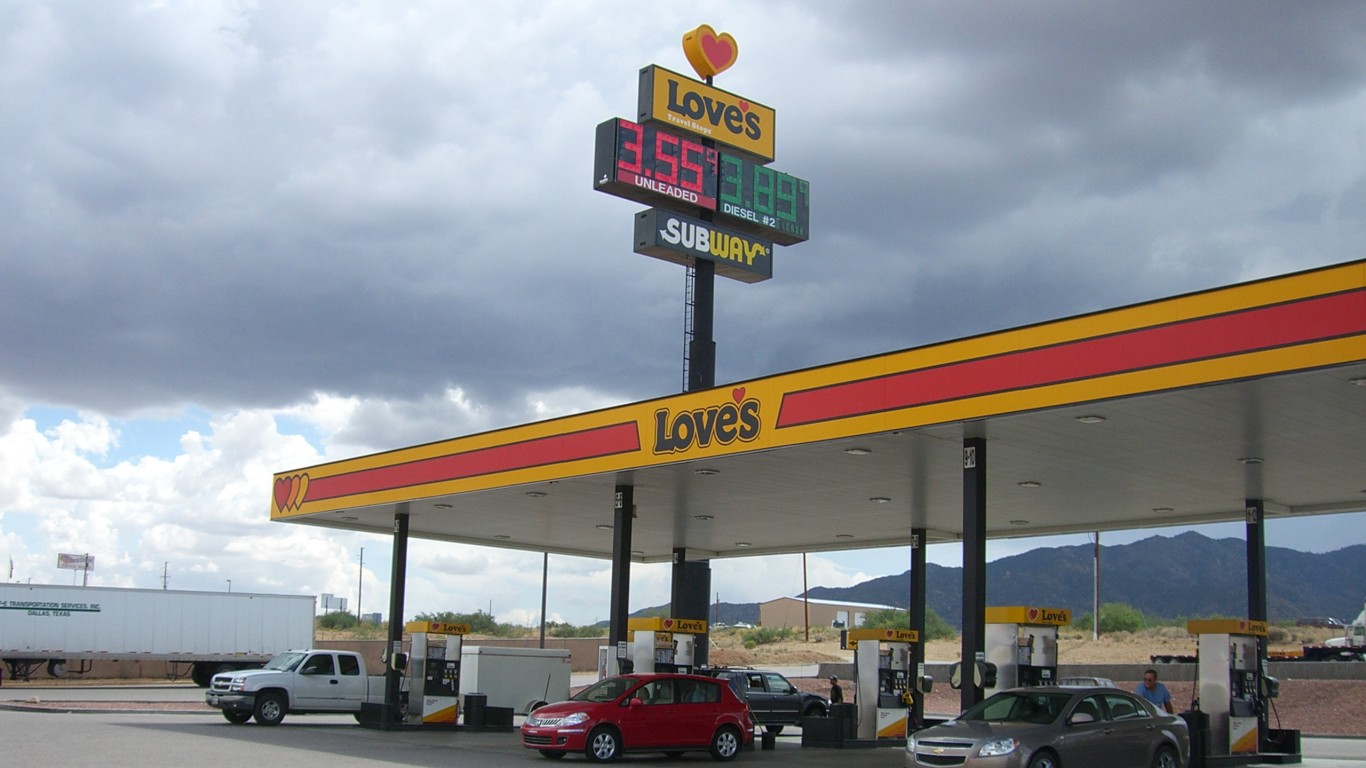For years, conservative investors looking for income have trusted the major integrated oil companies for stable growth and consistent quarterly income. For the most part, that has always been a very safe bet, even when oil has plunged in pricing. Now with all the oil companies forced to rein in capital expenditures (capex) and cut costs, one of the questions lurking for investors is whether any of the top companies have to reduce or even eliminate the dividends they pay. Source: Thinkstock
Source: Thinkstock
A new report from the energy team at J.P. Morgan paints a rather bleak, but reasonably stable outlook for some of the big boys. With costs being slashed and share buybacks being halted for the most part, it appears that, although some rough seas may remain ahead, investors who have already taken a hit with share prices dropping should continue to get their quarterly dividend checks.
Chevron Corp. (NYSE: CVX) is a reasonably safe story for investors looking to stay long the energy sector, which needless to say is probably the most out-of-favor sector on Wall Street. With its large dividend to cover, the J.P. Morgan team sees the company getting closer to sustaining capex and free-cash-flow potential. With its solid place in the energy sector when it comes to natural gas, long-term investors willing to look past the current debacle in oil pricing may be able to make a solid buy on this industry behemoth. Analysts estimate the company will have a compound annual growth rate of over 5% for the next five years, and the stock trades at a sizable valuation discount to its mega-cap peers.
Chevron investors are paid a 3.8% dividend, which looks sustainable for now. J.P. Morgan rates the stock at Neutral, with a $111 price target. The Thomson/First Call consensus price target for the stock is $114.22. Shares closed on Tuesday at $112.40.
ALSO READ: UBS Quality Growth at a Reasonable Price Stocks Beating the S&P 500
ConocoPhillips (NYSE: COP) is a large integrated name that draws a serious look at J.P. Morgan, as it is highly leveraged and is one of the companies that the analysts see reducing their amount of leverage the most by 2017. The company has spent the past five years divesting assets, and although it is cash rich, it has somewhat dampened earnings and growth expectations. At this juncture, with oil perhaps finding a bottom, and the market watching Saudi Arabia’s recent change of leadership, analysts may feel more comfortable with the stock. The big production ability in the Eagle Ford could bode well for the future.
Conoco investors are paid a 4.2% dividend, which appears safe for now. The stock is rated Underweight at J.P. Morgan, with a price target of $67. The consensus price target is $72.30, and Conoco closed Tuesday at $69.47.
Exxon Mobil Corp. (NYSE: XOM) is an energy sector behemoth that the J.P. Morgan analysts are reasonably comfortable with. They note that the company has a very strong balance sheet and low per-barrel breakeven price level. Wall Street as a whole acknowledges the strength of the integrated giant plays a significant part in the company’s overall fiscal strength. The company’s global downstream chemical segment plays a huge part for Exxon in adding to revenues and helping to hedge energy pricing to some degree.
Exxon investors are paid a 2.95% dividend, which should remain safe. J.P. Morgan has the stock rated at Neutral, with $93 price target. The consensus price objective is in line at $93.63. Shares closed trading on Tuesday at $93.05.
Suncor Energy Inc. (NYSE: SU) is a top Canadian oil producer and a major player in the vast oil sands in Canada. The company announced last year a deal with blue chip industrial behemoth General Electric aimed at improving the environmental performance of the oil sands in Alberta. The deals have created an investment opportunity of about $18 million. With environmental pressure a huge industry concern, this could prove a solid move for the long term. The J.P. Morgan team feels Suncor has the most flexibility around actual versus sustainable dividend coverage and a healthy balance sheet.
Suncor investors are paid a 2.85% dividend, which appears very solid for now. J.P. Morgan has an Overweight rating on the stock, and a $40 Canadian currency target. The consensus price target is posted at $43.18. Shares closed trading Tuesday at $31.67.
ALSO READ: 4 Clean Technology Stocks to Buy as Huge Growth Continues
While it has been a tough ride for energy investors, the major integrateds always have been the safest port in an oil price storm. Eventually production cuts should start to have a greater effect. The days of $100 a barrel oil may be over for some time, but many investors have already bought these giants, as they are all well off the lows and were a solid long-term value.
Sponsored: Attention Savvy Investors: Speak to 3 Financial Experts – FREE
Ever wanted an extra set of eyes on an investment you’re considering? Now you can speak with up to 3 financial experts in your area for FREE. By simply
clicking here you can begin to match with financial professionals who can help guide you through the financial decisions you’re making. And the best part? The first conversation with them is free.
Click here to match with up to 3 financial pros who would be excited to help you make financial decisions.
Thank you for reading! Have some feedback for us?
Contact the 24/7 Wall St. editorial team.


